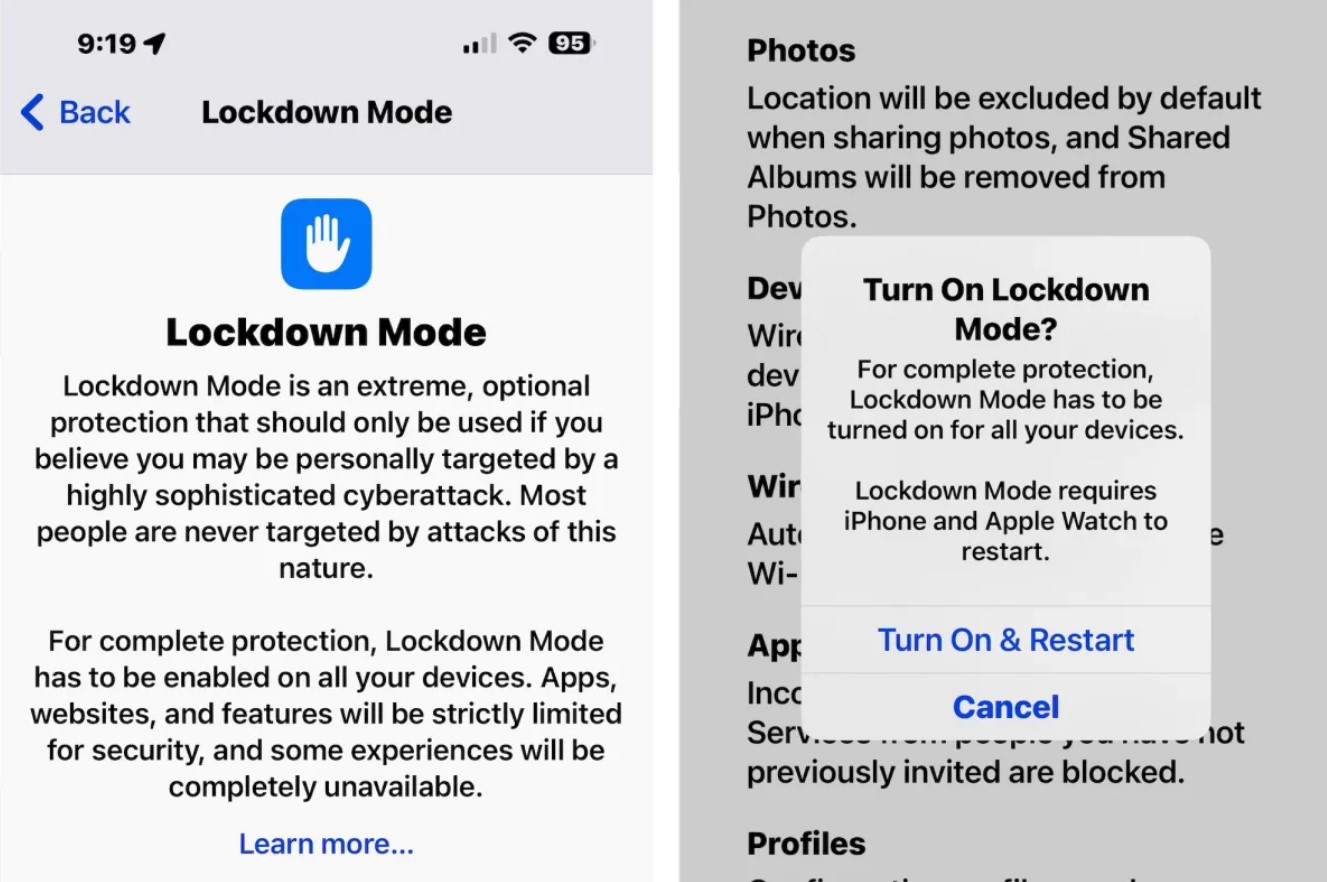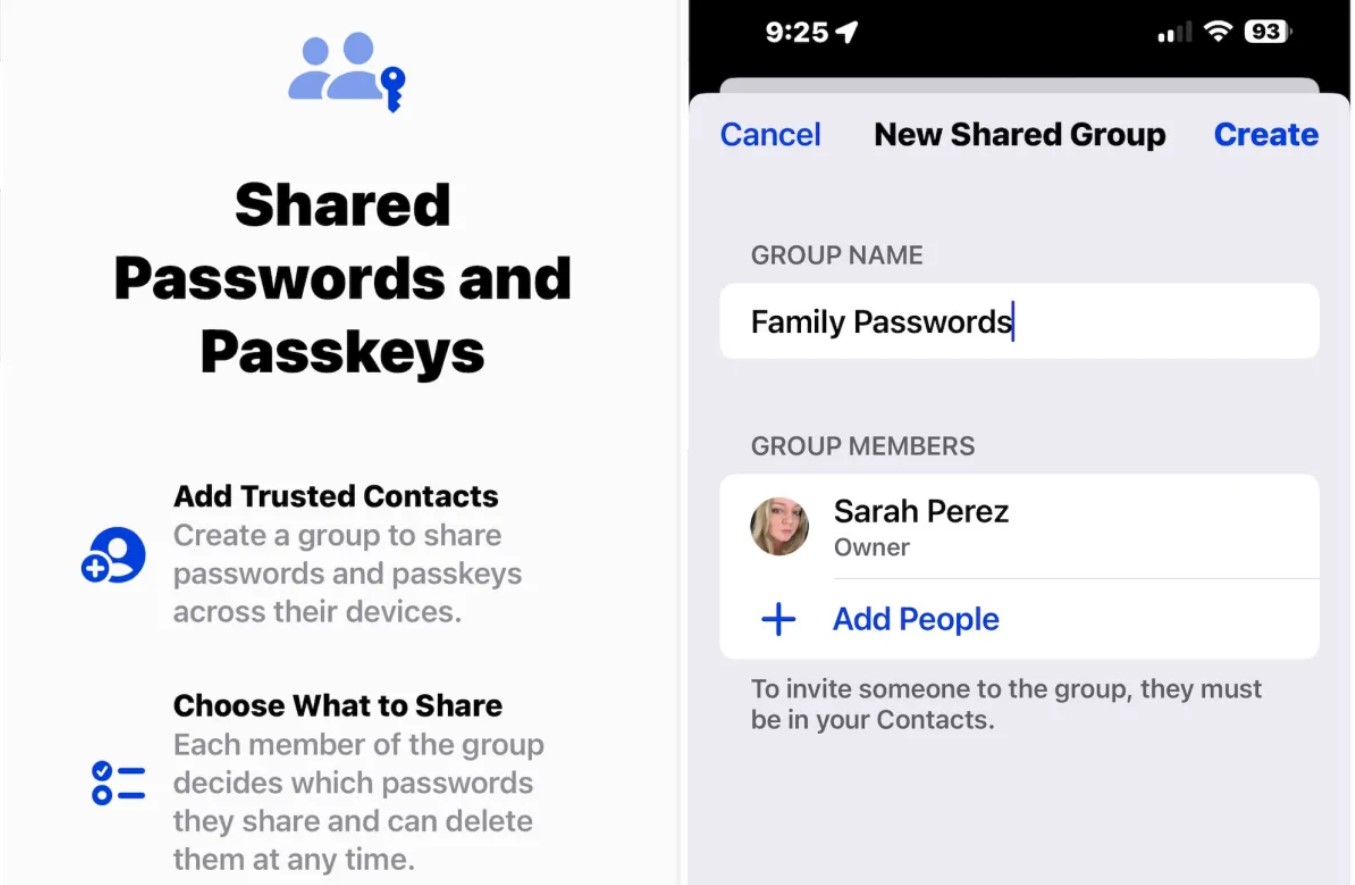The much-anticipated iOS 17 update for iPhones arrives today with new and improved security features. Much of the new features protect iPhone owners at higher risk of cyberattacks and spyware, like journalists, activists, and human rights defenders. iOS 17’s anti-web tracking, password storage, and easy sharing of new phishing-resistant passkeys are better for the general public.
See what we’ve seen.
New Lockdown Mode safeguards
Lockdown Mode now works on Apple Watch, which is its biggest update. It can’t come soon enough after recent spyware exploits compromised Apple Watch owners.
Lockdown Mode disables iPhone (and Watch) features that spyware makers have abused, such as iMessage and HomeKit, making it harder to break into and steal data.

Lockdown Mode in iOS 17 automatically removes geolocation data from photos when shared, including where the photo was taken, which could reveal a person’s location.
Another cool feature is that iPhones in Lockdown Mode won’t automatically join non-secure Wi-Fi networks that could be analyzed by a network member. Lockdown Mode also blocks 2G networks. This blocks a variety of cellular-based exploits used by cell site simulators, or “stingrays,” which law enforcement uses to trick nearby phones into connecting to fake cell base stations and track phone locations and calls and messages. Because they ensnare devices randomly and over a large area, stingrays are controversial.
Additional anti-web tracking features
Safari 17 in iOS removes web address tracking information that can uniquely identify your device and track you online. This makes it harder for websites and advertisers to track your visits.
On iOS 17, you can enable this feature in Safari settings for private browsing or all browsing sessions to make a difference. Your daily browsing shouldn’t be affected.
![]()
By default, private browsing locks, requiring a face or fingerprint scan before opening.
Check safety features and avoid scammers
Passkeys, the phishing-resistant password replacement that lets you log in without worrying about your passwords, are being updated. Many sites and services support passkeys, including Apple, Google, Microsoft, PayPal, and others. Soon, passwords will be obsolete. Passkeys and passwords can now be shared with friends and family. No one, including Apple, can access shared passwords and keys due to end-to-end encryption.

iPhone users can now share their safe arrival plans with friends using Check In. The feature tracks the person’s real-time location and alerts the friend if anything is wrong. This end-to-end encrypted location data eliminates the need for third-party apps that sell your data to advertisers and data brokers.
Finally, Live Transcription helps people avoid spam and scam calls. Live transcription converts the caller’s voice into text on the screen in real time instead of answering (or declining) the phone, which can alert the caller.
 Tech Gadget Central Latest Tech News and Reviews
Tech Gadget Central Latest Tech News and Reviews




